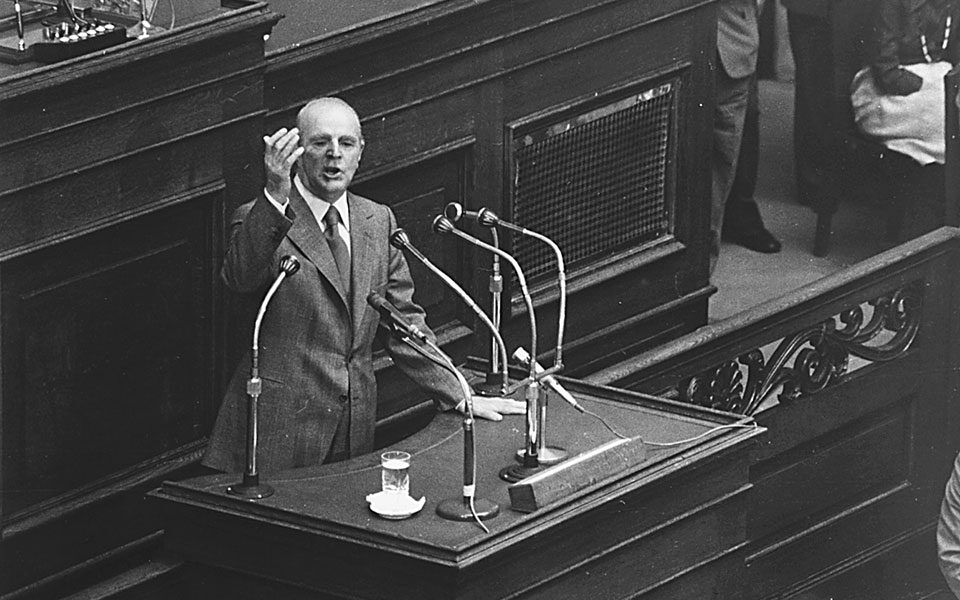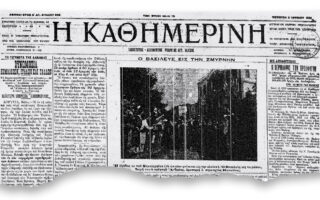If there were social media in 1974

Have you ever thought what the Metapolitefsi in 1974 would have been like if social media had been around? Have you wondered whether the true “miracle” that was achieved in this country with the smooth and moderate transition from a dictatorship to democracy would have been possible in the current climate with the barbarity and cannibalism in public discourse?
Having spent many years studying the events of that summer, I try to put myself in the shoes of Konstantinos Karamanlis, who suddenly found himself governing the country as the Turkish invasion of Cyprus was ongoing, the state machine was still in the hands of the junta and the people were lashing out – with good cause – at the West and the old establishment. He did not know whether the policeman standing sentry outside his room was guarding him or spying on him. Marines were camped out in the National Garden to prevent an attack on him and a new coup, as he demanded the withdrawal of all major units from Attica.
At the same time, he faced a critical dilemma: to help Cyprus militarily or not? He knew that not doing so would brand him a traitor and taking the risk could get the country embroiled in a very precarious and drawn-out situation. The only recommendation he had was from the heads of the armed forces, who suggested sending a military convoy, on the condition that it would have the coverage of the US Sixth Fleet – the product of strategic and practical considerations. He also had to deal with calls from political leaders for a change of NATO guard.
Nevertheless, he was able, in this maelstrom of conflicting and powerful forces, to carve a sage course that took the country across the Rubicon without shedding any more blood, without any new coups or civil wars. Some later accused him of making decisions that took a toll on the country and it’s true that departing from the military leg of NATO came at a price, especially in the Aegean. As did the “socialmania” and an approach of egalitarianism in higher education that leveled the field down.
All this, however, is criticism that ignores the facts. It ignores the image of a leader facing a tsunami of anger and protest, who knew that he needed to stay the course but also not to try sailing completely against the current. Greek society was a bubbling cauldron after the junta and everything that had come before that. Anyone who understood what was happening knew that all this anger would find an outlet in extremism if it was not given room.
Now imagine those events taking place in a climate like the present one, with social media – which act as accelerators of extreme populism – and the current quality of public discourse. Karamanlis would be subjected to relentless bashings for not executing the putschists, kicking out the American bases, not leaving NATO entirely, etc, etc.
No one can predict where the country would have been today if Karamanlis had not stood up to the pressure. And then there’s the frightening thought of what kind of result we would have seen in a referendum (with social media doing what it does in the background) on whether Greece should join the European Economic Community.





